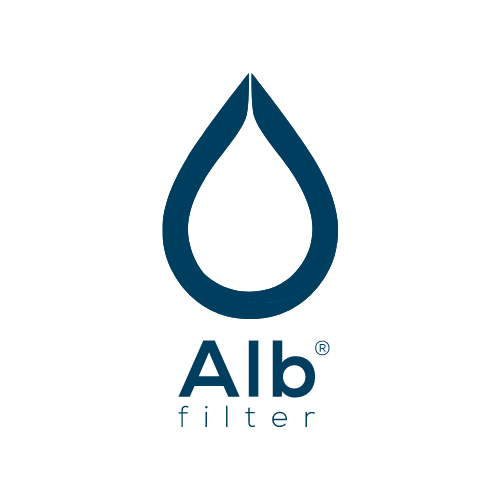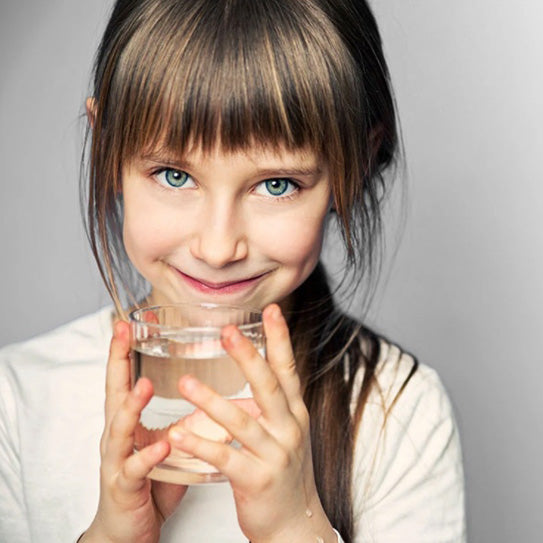Tapwater Italy: Drinkable or not?
Italy is undoubtedly one of the most popular vacation destinations for relaxed summer vacations. Sun, beach, sea and original Italian pizza - what more could you want? But in all the anticipation, you shouldn't forget the most important food of all: Drinking water.
Are you planning your next vacation in Italy? Then find out more about localTapwater here.
In this Guidebook you will learn ...
- ... whether you can drink Tapwater in Italy,
- ... when it is better not to drink it,
- ... how water quality differs from region to region,
- ... where the drinking water in Italy actually comes from
- ... and what you yourself can contribute to clean water.

Water quality in Italy: Can you drink Tapwater in Italy?
The quality of tap water in Italy has improved considerably in recent years. As a member of the EU, Italy must meet its requirements for drinking water quality. 1
Tapwater is therefore safe to drink in most of the country. However, it is heavily chlorinated - especially in the hot summer months - and therefore tastes very different to our Tapwater here in Germany. Many holidaymakers and locals therefore tend to reject Tapwater in Italy and opt for bottled mineral water.
What's more, water treatment in Italy cannot completely filter all pollutants out of the water. As a result, residues of hormones, medicines, pesticides and the like end up in the drinking water, at least occasionally. There is therefore always a risk that certain pollutants are present in local drinking water.
What is the bathing water quality like in Italy?
The average bathing water quality in Italy is at a relatively high level. 88.6% of bathing waters were classified as "Excellent" in a report by the European Environment Agency (EAA) in 2020. 1.7% were rated as "Poor". 2 The EAA also provides an interactive map of bathing water quality on its website. 3 There you can check the water quality of your local beaches before your next vacation.
Drinking Tapwater in Italy: when is it better not to?
Even if you can drink Tapwater in Italy in principle, there are some situations in which you should not simply do so. Below are a few situations in which drinking water may well be contaminated.
How do I recognize contaminated water in Italy?
Changes in color, taste and smell are usually indicators of contaminated water. However, due to the high proportion of lime and especially chlorine in Tapwater in Italy, these may also be normal side effects. You may therefore not be able to recognize contaminated water on site at first glance.
Water from the tap in hotels
In Italian hotels, you should not drink water straight from the tap without further ado! Older accommodation in particular often still has old and dilapidated water pipes, which significantly impair the water quality. As a tourist, you should therefore always ask directly at your accommodation whether the Tapwater is drinkable or not.
Drinking water at the campsite in Italy?
The situation at campsites is similar to that in hotels. Depending on the region, the water is normally perfectly safe to drink. However, outdated pipes may ensure that it is enriched with undesirable substances right up to the tap. The same applies here: ask the campsite operator and take appropriate measures if necessary. More on this below.
Drinking water from wells?
There are numerous fountains in Italy, especially in the larger cities. However, the water from them is not always drinkable. There are usually signs indicating whether you can drink the water there or not. If a fountain is marked with the sign "Non bere. Aqua non potabile", this means that you should NOT drink the water. If the water from the fountain is drinkable, there is either no sign at all or the sign "Aqua potabile".
Italy's capital Rome is a good example of large-scale fountains. There are numerous so-called nasoni there. 4 These are drinking fountains that are spread throughout the city and provide fresh drinking water.
There are also the "Case dell'acqua".5 These are small high-tech installations in the middle of the city where you can drink water and charge your cell phone, tablet, etc. Incidentally, you have the option of drinking both still and sparkling water there.
Tapwater Italy: differences depending on the region
In many regions of Italy, you can drink Tapwater without any problems, at least in the short term. However, there are some places where you should not drink tap water without further ado.
The water quality tends to be better in mountainous regions than in coastal regions. You will quickly notice this from the stronger taste of chlorine. South Tyrol, for example, has naturally very good drinking water quality due to its numerous mountain springs, whereas areas directly by the sea have to treat the water by adding large quantities of chlorine. 6 Ideally, you should always enquire about the quality of the tap water directly on site.
As recently as June 2021, the European Commission decided to take Italy to court over contaminated drinking water. 7 This affects some areas in the Lazio region. Although measures have already been taken there to improve water quality, the drinking water continues to exceed threshold values for arsenic and fluoride. However, such contamination of tap water is the exception rather than the rule and does not reflect the general water quality in the country!
Drinking water quality at Lake Garda: is it safe to drink Tapwater ?
Anyone on vacation at Lake Garda wonders: Can I just turn on the tap here and drink the Tapwater ? Yes, Tapwater is drinkable according to EU standards, confirmed by regular checks by the Italian Ministry of Health.8
But high lime content and the addition of chlorine spoil the taste. The taste of chlorine is not only unpleasant, but can also cause stomach irritation or other complaints with long-term consumption, as studies on chlorine exposure suggest.9
In older buildings, such as in Sirmione or Riva del Garda, outdated pipes often impair the quality due to pollutants such as lead or rust. A water filter with activated carbon effectively removes chlorine and pollutants. This also makes Tapwater a pleasure to drink on vacation.
Tapwater on Lake Maggiore: How good is the drinking water quality?
The drinking water situation at Lake Maggiore looks solid - EU directives are complied with and quality is strictly controlled.8
But the catch? Especially on the Italian shore, such as in Stresa, the chlorine additive with its bland taste is annoying and can put a strain on health in the long term, for example through digestive problems.9
In older buildings, outdated pipes exacerbate the problem by releasing pollutants. A water filter can help to reliably remove chlorine and pollutants. In Switzerland, for example in Locarno, the quality is often better thanks to modern pipes.
Where does the drinking water in Italy come from?
The majority of tap water in Italy comes from surface waters such as rivers and lakes. There are also some groundwater reservoirs that supply the country with drinking water. Where exactly the water comes from locally depends heavily on the region.
South Tyrol, for example, often obtains its drinking water from mountain springs and deep wells. The drinking water in Venice, on the other hand, comes from groundwater sources on the mainland of the region. This water is transported to Venice via several pipelines, where it is then filtered and treated.
Drinking water Italy: tips for clean water
Many tourists, as well as Italians themselves , often choose bottled water. This is mainly due to the strong chlorine taste and not because of a supposed lack of water quality. In addition, mineral water is relatively cheap in many places - both in supermarkets and restaurants.
However, buying bottled water is not the only alternative if you want to ensure that you only drink clean water. Water filters are a far more environmentally friendly option. These remove unwanted contaminants from Tapwater and provide you with pure drinking water.
The Active Plus+ water filter from Alb Filter®, for example, reduces heavy metals, microplastics, limescale, germs and bacteria from the water. It also reduces the unpleasant smell and taste of the water caused by the high chlorine content. It fits most taps and can therefore be easily taken to vacation homes etc. and installed in no time at all.
Tapwater Italy: To be enjoyed with caution!
Basically, at least for the duration of a short vacation, you have less to worry about if you want to drink water straight from the tap in Italy. For the most part, Tapwater in Italy meets EU standards and is therefore safe to drink - even if it is disputed whether these guidelines are really sufficient. To be on the safe side, you should always enquire locally, as old pipes etc. can lead to the water being contaminated with heavy metals, germs and the like.
Above all, the strong taste and smell of chlorine can be unfamiliar and off-putting. With a water filter, you can always play it safe and reduce both any harmful substances and the unpleasant chlorine.

FAQs about Tapwater in Italy
Do you still have questions? Then read the answers to the most frequently asked questions about drinking water in Italy here.
Why can't you drink the water in Italy?
The fact that you can't drink Tapwater in Italy is a myth! In principle, the water is safe to drink in most of the country. Only in selected regions should you be careful when drinking Tapwater , as it could be contaminated with germs and other harmful substances, mainly due to old pipes.
Can you brush your teeth with Tapwater in Italy?
As the drinking water in most of the country is of good quality and drinkable, brushing your teeth with Tapwater is no problem!
Related articles and products
References
- European Union
Directive (EU) 2020/2184 - European Environment Agency
Italian bathing water quality in 2020 - European Environment Agency
GIS Map Application: State of bathing waters in 2020 - Acea
Nasoni - Acea
Water Houses - Provincial Agency for the Environment and Climate Protection
Drinking water in South Tyrol - European Commission
Commission decides to refer Italy to the Court of Justice over contaminated drinking water - Ministero della Salute
Sistema Informativo Nazionale per l'Acqua di Consumo (SINAC) - WHO
Guidelines for Drinking-water Quality





